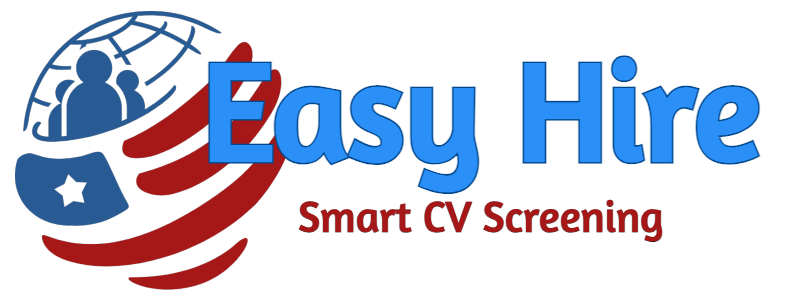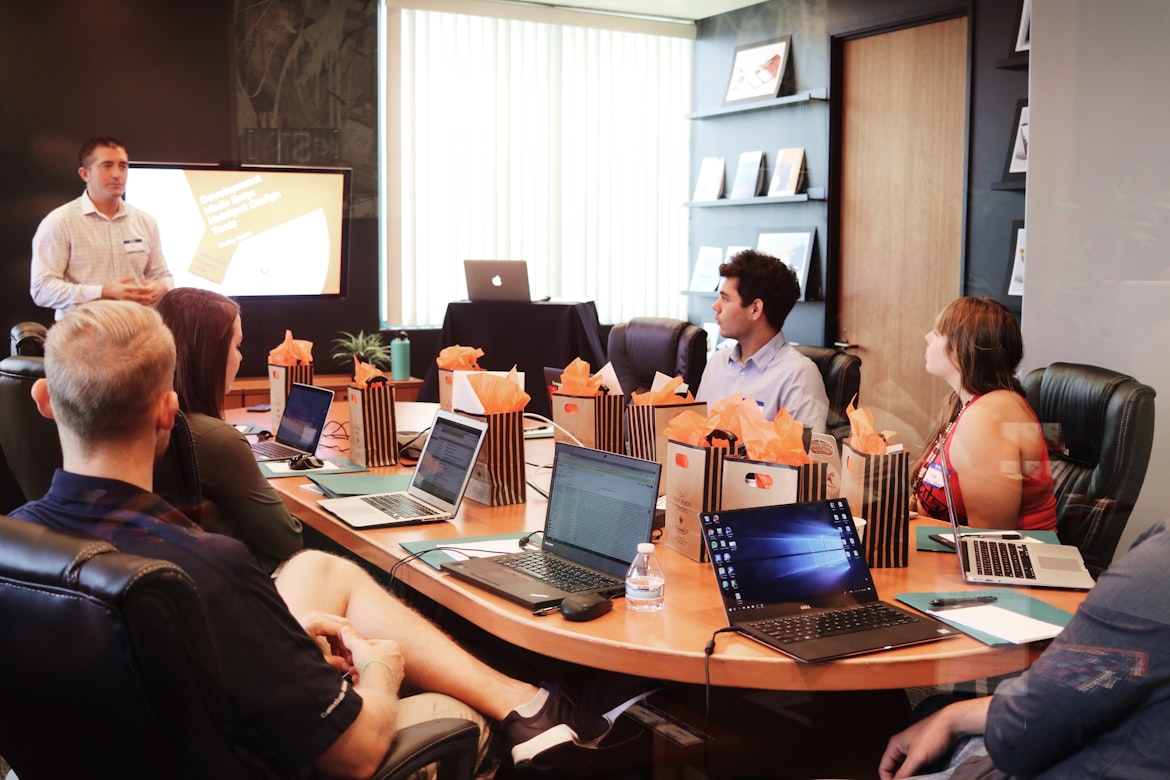“`html
AI-Powered Screening: How to Evaluate Skills Effectively
In today’s high-speed hiring landscape, finding and selecting the right talent quickly and effectively is a huge competitive advantage. But when resumes pile up and recruiters are overwhelmed by hundreds—sometimes thousands—of applications, traditional resume screening just doesn’t cut it anymore. That’s where AI-powered screening comes into play.
Whether you’re a recruiter juggling multiple roles or a hiring manager trying to build a winning team, AI skills evaluation is changing the way organizations assess candidates. It’s not just about speed—although that’s a big plus. It’s about accuracy, fairness, and making data-driven hiring decisions. Let’s dive deep into how this technology works, why it matters, and how you can harness it to build better teams.
Table of Contents
- Why Traditional Resume Screening Isn’t Cutting It Anymore
- What Is AI-Powered Screening, and How Does It Work?
- The Benefits of AI Skills Evaluation in Hiring
- Real-Life Applications: How Companies Are Using AI Resume Screening Tools
- How to Implement AI-Powered Screening Effectively
- Overcoming Challenges of AI in Recruitment
- Best Practices for Success
- Final Thoughts
- Frequently Asked Questions
Why Traditional Resume Screening Isn’t Cutting It Anymore
Think about the last time you combed through a stack of resumes. You probably spent hours looking for specific skills, relevant experience, or certain keywords. It’s tedious, inefficient, and more importantly, it’s prone to human error and bias. Traditional resume screening often falls short in evaluating candidates comprehensively.
Here are the common pitfalls:
- Time-consuming: Studies show that recruiters spend about 6–8 seconds per resume. That’s barely enough to skim the surface.
- Bias-prone: Unconscious bias affects nearly every step of manual screening, from judging names to making assumptions based on previous employers or education.
- Skills overlooked: Many resumes don’t follow a uniform format, making it easy to miss key qualifications—especially soft skills or transferable experience.
- Poor candidate experience: Long waiting periods and lack of updates result in disengaged applicants.
This broken system doesn’t just hurt candidates—it costs companies top talent, time, and money. Enter AI-powered screening tools, revolutionizing how we approach AI skills evaluation.
What Is AI-Powered Screening, and How Does It Work?
AI leverages technologies like NLP and machine learning for effective skill matching.
AI-powered screening tools use artificial intelligence and machine learning technologies to evaluate candidates’ qualifications, both quickly and objectively. Instead of your team manually scrolling through resumes, AI solutions scan and rank candidates based on how well they meet the job’s predefined criteria. This makes AI skills evaluation more precise.
Here’s a simplified breakdown of how AI resume screening tools work:
-
Resume Parsing
AI reads and extracts structured data from resumes. It identifies elements like:
- Work history
- Educational background
- Certifications
- Skills—both hard and soft
- Languages
- Achievements
It processes this data at lightning speed, regardless of format or layout.
-
Skill and Role Matching
Next, the tool evaluates how closely a candidate’s profile matches the job description. It looks at:
- Keyword relevance (beyond simple keyword matching!)
- Contextual understanding—e.g., recognizing that “Java” as a skill refers to programming, not just coffee
- Career progression or gaps in employment
It then scores each applicant based on the weight of each requirement. Effective AI skills evaluation depends on this contextual understanding.
-
Predictive Analytics
Some advanced tools go a step further. They use past hiring data and employee performance trends to estimate a candidate’s likelihood of success in the role. That means you’re not just guessing who might be a good fit—you’re using data to predict it.
-
Unbiased Evaluation
AI algorithms, when designed responsibly, minimize human bias. For example, they don’t consider personal characteristics like gender, age, national origin, or even school name unless explicitly programmed to, contributing to fair resume screening.
The Benefits of AI Skills Evaluation in Hiring
AI skills evaluation leads to improved team diversity and efficiency.
There’s a reason more and more companies—from lean startups to Fortune 500 giants—are investing in AI resume screening tools. Let’s look at the specific advantages of AI skills evaluation.
- Huge Time Savings: AI can screen thousands of resumes in minutes, an impossible task for human reviewers. This drastically shortens time-to-hire.
- Better Accuracy: AI uses standardized criteria to evaluate candidates, so it’s less likely to miss a perfect-fit applicant who happened to use different wording on their resume. It considers the full context rather than just checking off keywords.
- Improved Quality of Hire: Thanks to predictive analytics, AI can identify candidates who not only meet job requirements but also align with company values and culture (when configured for this). The result? Stronger hires who are more likely to stick around.
- Bias Reduction: While no system is perfect, AI-powered screening can significantly reduce unconscious biases by masking irrelevant information during screening. This leads to more diverse and inclusive hiring practices.
- Enhanced Candidate Experience: Candidates appreciate faster decisions. AI enables quicker communication, reducing ghosting and keeping top talent engaged.
- Scalable and Consistent: Manual resume screening struggles to maintain consistency, especially at scale. With AI skills evaluation, you’re able to ensure that every applicant is measured against the same standards—fairly and accurately—regardless of volume.
Every second counts in high-volume or competitive talent markets. Streamlining this initial phase with AI means better engagement and lower drop-off rates.
Real-Life Applications: How Companies Are Using AI Resume Screening Tools
Let’s take a look at some companies that have successfully incorporated AI-powered screening solutions.
Unilever
Unilever implemented an AI-driven recruiting system that includes online games for skill testing and video interviews analyzed by machine learning. What happened?
- They saw a 75% reduction in time spent per hire.
- Increased candidate satisfaction due to quicker feedback.
- Lower dropout rate during the hiring process.
Hilton
Hilton turned to AI to streamline its recruitment pipeline. The impact?
- Time-to-fill dropped by 90%.
- Employee retention improved by over 40%.
- Hiring managers had more bandwidth to focus on face-to-face interactions with well-matched candidates.
These results aren’t coincidences—they’re proof that AI resume screening tools can significantly optimize hiring both qualitatively and quantitatively.
How to Implement AI-Powered Screening Effectively
Careful planning and tool selection are key for successful AI implementation.
Ready to get started with AI skills evaluation in your recruitment process? Here’s a step-by-step blueprint to do it the right way:
-
Choose the Right AI Resume Screening Tool
Not all tools are created equal. Look for platforms that offer:
- Easy integration with your existing applicant tracking systems (ATS)
- Natural language processing (NLP) capabilities
- Real-time analytics and reporting
- Transparent AI practices (avoiding black-box algorithms)
- Data privacy and compliance features (GDPR, EEOC)
Some popular platforms include HireVue, Pymetrics, XOR, and Easyhireapp. Using tools like Easyhireapp’s AI resume screening tools gives you access to cutting-edge analytics and matching algorithms designed to streamline the hiring process while ensuring top-notch candidate evaluation.
-
Start with a Well-Defined Job Description
AI is only as effective as the data it works with. Be clear and specific when defining:
- Required skills (technical and soft)
- Preferred qualifications and certifications
- Desired years of experience
- Must-have vs. nice-to-have attributes
The cleaner and clearer your job posting, the better the AI can screen candidates.
-
Train Your Recruiting Team
AI tools are meant to supplement—not replace—human decision-making. Make sure your team:
- Understands how the AI tool works
- Can interpret score breakdowns effectively
- Monitors the quality of candidate matches
Provide ongoing training to assist recruiters in combining AI insights with their own judgment for optimal AI skills evaluation.
-
Evaluate and Optimize
AI solutions aren’t “set it and forget it.” Monitor their performance. Are they screening the right candidates? Are too many high-potential applicants getting rejected? Are the results aligning with actual job performance down the line? Regularly audit the algorithms for your AI-powered screening and provide feedback to improve accuracy and reduce unintended bias.
-
Maintain a Human Touch
While AI speeds up screening and reduces bias, the human element is still crucial. Pair AI skills evaluation with in-depth interviews and culture-fit assessments to ensure your team gets the best of both worlds—precision and personality.
Overcoming Challenges of AI in Recruitment
Of course, no technology is without challenges, and AI is no exception, especially in resume screening.
Data Privacy & Compliance
AI tools process a lot of personal data. Stay compliant with data protection regulations like GDPR or CCPA. Always:
- Inform candidates about AI usage
- Offer alternatives when possible
- Safeguard all stored information
Algorithmic Bias
Ironically, AI can perpetuate bias if it learns from skewed or incomplete historical hiring data. To ensure fair AI-powered screening, always:
- Regularly audit algorithmic decisions
- Remove biased data inputs
- Diversify training data
Cost & ROI Concerns
While initial investment can be high, the long-term ROI comes from faster hiring, better matches, and lower turnover. Choose scalable options and pilot in stages to see measurable benefits from your AI resume screening tools.
Best Practices for Success
To make AI skills evaluation work for you, keep the following best practices in mind:
- Start small: Pilot the technology on one role or department before scaling.
- Involve stakeholders: Include HR, hiring managers, and IT in the implementation process.
- Communicate clearly with candidates: Let applicants know what tools are being used and how their information is managed.
- Use AI alongside other assessments: Combine AI findings with behavioral interviews, skill tests, and team exercises for a holistic view.
Final Thoughts
The hiring process is evolving, and organizations that refuse to adapt risk falling behind. AI-powered screening isn’t just a tech trend—it’s a proven method for enhancing recruitment speed, quality, and fairness. An effective AI skills evaluation process can be transformative.
By leveraging AI skills evaluation, you reduce recruitment guesswork and rely more on data, context, and predictive insights. That translates to better hires, improved retention, and a happier HR team.
As you move forward in your talent acquisition strategy, consider how AI resume screening tools can revolutionize your approach. Tools like those offered by Easyhireapp not only streamline your workflow—they give you the strategic advantage to stay ahead in a talent-driven market.
So, are you ready to leave behind tedious screening and step into smarter hiring?
Start Your Journey with AI-Powered Screening
Want a deeper dive into the nuances? Check out this guide on the pros and cons of AI resume screening tools to make an informed decision. AI isn’t replacing humans—it’s helping them hire better, faster, and more fairly than ever before.
Let’s build smarter together.
Frequently Asked Questions
1. What is AI-powered resume screening?
AI-powered resume screening uses artificial intelligence and machine learning to analyze and evaluate candidates’ resumes quickly and objectively. It extracts data, matches skills to job requirements, and ranks applicants based on predefined criteria.
2. How does AI reduce bias in hiring?
AI minimizes bias by focusing on skills, experience, and qualifications while ideally ignoring irrelevant factors like gender, age, or ethnicity. However, it’s essential to ensure the AI is trained on unbiased data and regularly audited to avoid perpetuating historical biases.
3. Can AI replace human recruiters?
No, AI is a tool to assist recruiters, not replace them. It handles repetitive, time-consuming tasks like initial resume screening, allowing recruiters to focus on more strategic aspects like building relationships, conducting in-depth interviews, and assessing cultural fit.
4. What are the key benefits of AI skills evaluation?
The main benefits of AI skills evaluation include faster hiring, improved accuracy in matching candidates to roles, better quality of hire, reduced unconscious bias, an enhanced candidate experience through quicker feedback, and scalability for high-volume recruitment.
5. How do I choose the right AI resume screening tool?
Look for AI resume screening tools with robust natural language processing (NLP) capabilities, seamless integration with your Applicant Tracking System (ATS), transparent and explainable algorithms, and strong compliance with data privacy regulations (e.g., GDPR, CCPA). Popular options include HireVue, Pymetrics, XOR, and Easyhireapp.
6. What challenges come with AI in recruitment?
Challenges include ensuring data privacy and security, mitigating and avoiding algorithmic bias (which can arise from biased training data), and justifying the initial investment versus long-term ROI. Regular audits, diverse training data sets, and clear communication with candidates can help address these issues.
7. How can I ensure AI screening aligns with my company’s needs?
Start with a clear, detailed, and unbiased job description. Train your recruitment team to use the AI-powered screening tool effectively and to interpret its outputs critically. Regularly evaluate the AI’s performance against hiring goals and make adjustments as needed. Always combine AI insights with human judgment for a balanced and effective approach.
8. Is AI screening suitable for small businesses?
Yes, many AI resume screening tools are scalable and offer pricing models that can be tailored to fit the needs and budgets of small businesses. Starting with a pilot program on a limited scale can help assess its effectiveness and ROI before full implementation.
9. How does AI improve the candidate experience?
AI speeds up the initial resume screening process significantly, which means candidates receive feedback or updates more quickly, reducing frustrating wait times. It also ensures fair and consistent evaluations based on defined criteria, which can enhance trust in the hiring process, leading to a better overall candidate experience.
10. What’s the future of AI in hiring?
The future of AI in hiring points towards more advanced predictive analytics for success, increasingly sophisticated bias detection and reduction mechanisms, and even more seamless integration with other HR technologies for a holistic talent management ecosystem. AI will remain a key strategic tool for organizations aiming to stay competitive in talent acquisition and development through efficient AI skills evaluation.
“`




